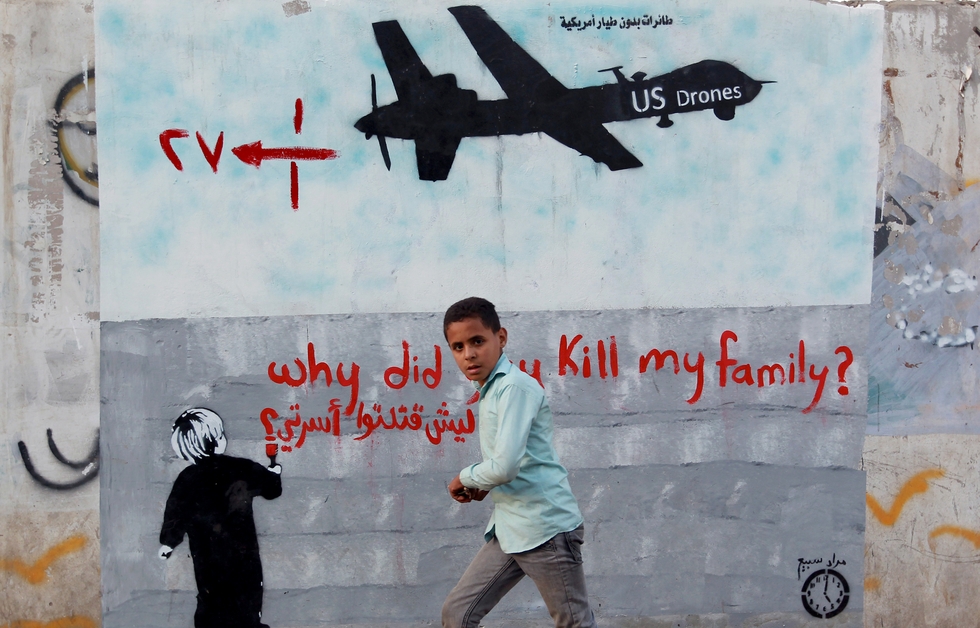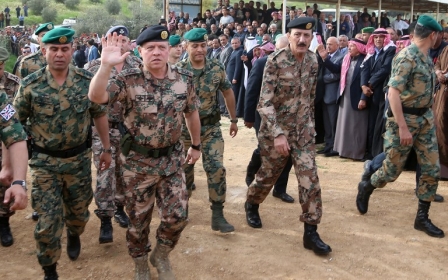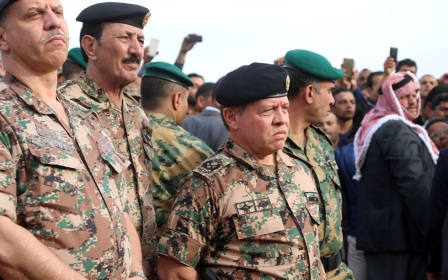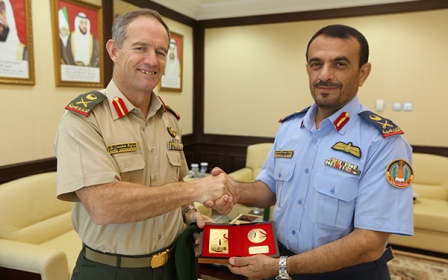Britain secretly waging war in Yemen, despite denials: Report

Britain has played a crucial role in the United States military campaign in Yemen targeting militants from the world’s most feared franchise of al-Qaeda, VICE News exclusively revealed on Thursday.
VICE said it had uncovered “systematic collaboration” between Britain’s Secret Intelligence Services (SIS) and America’s Central Intelligence Agency (CIA) in Yemen involving collaboration on the controversial drone campaign and, separately, with British Special Forces carrying out covert operations in the war-torn Arab nation.
The news comes after Middle East Eye recently revealed that British Special Forces are conducting previously unreported operations in Libya against the Islamic State and in Somalia against al-Shabab, both with the help of their Jordanian counterparts.
Britain has always denied playing a role in the US drone campaign in Yemen which has proved controversial with human rights groups saying that a large number of civilians have been killed in the attacks. Last year, the UN said that the drones had killed more civilians than alleged al-Qaeda militants.
In 2014, the then Foreign Office Middle East Minister Hugh Robertson said: “Drone strikes against terrorist targets in Yemen are a matter for the Yemeni and US governments.”
However, VICE, which spoke to more than two dozen current and former British, American, and Yemeni officials, revealed a series of occasions when Britain has provided crucial intelligence for the US to target AQAP militants.
One alleged incident saw UK intelligence lead to the killing of senior field commander AQAP Fahd al-Quso near a collection of farms in Wadi Rafad, southern Yemen, on 6 May 2012.
The Americans had been searching for over five years to locate Quso, who was wanted for his role in the 2000 bombing of USS Cole. They had tried and failed to kill him on four previous occasions, killing a total of 32 people in the process according to VICE.
The successful fifth attempt came, the report said, after the Americans were provided intelligence from a British MI6 agent who had infiltrated AQAP.
The strike that killed Quso also killed a civilian standing nearby – 19-year-old student Nasser Salim Lakdim, whose father said he found him “in pieces” over his death.
VICE established in their investigation that the unidentified British agent played a crucial role in eight further operations against AQAP, including at least two strikes that also killed civilians.
At the time of the strike against Quso Britain and the US had officially stopped working together on a military level because of the latter’s so-called “signature strikes”. Instead of targeting individuals these sought to bomb groups of people who were acting “suspiciously”.
Britain considered the signature strikes “unacceptable”, according to VICE, and both countries militaries ceased intelligence sharing on Yemen.
However, as reported by the news website, the ban on intelligence sharing did not extend to SIS – or the Special Forces seconded to them - who operate beyond the rules of the military and are overseen by the Foreign and Commonwealth Office.
Reprieve, a rights group that campaigns against the Yemen drone strikes, told VICE that their investigation had confirmed without doubt that Britain has played a role in the covert Yemen war.
“For years, the British government has denied any involvement in the US’s covert drone war in Yemen, saying it’s a ‘matter for the states involved’,” she said. “It’s now beyond dispute the UK is one of those states working hand in glove with the Americans to create the very kill list that drives those strikes.”
Conservative MP David Davis, who chairs the parliamentary group on drones, told VICE: “The involvement of the British state [in the Yemen drone campaign] is something that the government ought to make plain to parliament.”
Yemen is currently in the midst of a civil war pitting northern-based Houthi rebels against the Saudi-backed forces loyal to President Abd Rabbu Mansour Hadi.
Despite the war, the American drone campaign is ongoing and, according to the report, the conflict has made targeting AQAP easier, as the group holds specific territory, allowing the Americans to improve their intelligence on the group.
Ali al-Ahmadi, a former head of Yemen’s National Security Bureau, told newspapers that intelligence sharing between Britain and the US has carried on throughout the war.
An FCO spokesperson responded to VICE’s investigation by saying they have worked with local Yemeni forces to improve their capacity in dealing with the threat posed by groups including AQAP.
“We have previously provided counter-terrorism capacity building support to the Yemeni security services to increase their ability to disrupt, detain, and prosecute suspected terrorists in line with Yemeni rule of law and international human rights standards.
"Following the closure of the embassy in Sanaa in February 2015 we suspended this activity. We continue to work with regional and international partners to tackle the threat posed by terrorist organisations including AQAP […] and to build regional capacity on counterterrorism.”
Middle East Eye propose une couverture et une analyse indépendantes et incomparables du Moyen-Orient, de l’Afrique du Nord et d’autres régions du monde. Pour en savoir plus sur la reprise de ce contenu et les frais qui s’appliquent, veuillez remplir ce formulaire [en anglais]. Pour en savoir plus sur MEE, cliquez ici [en anglais].




